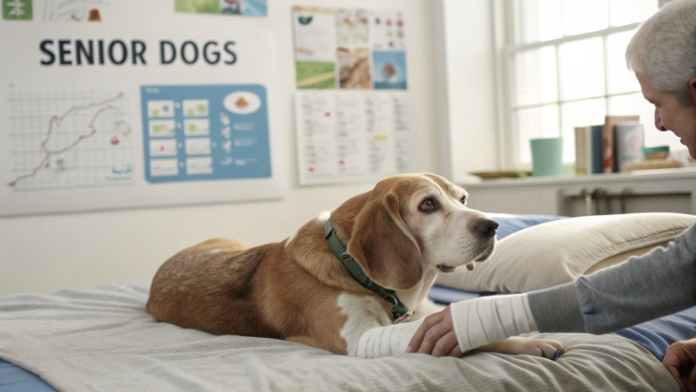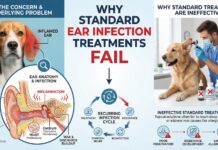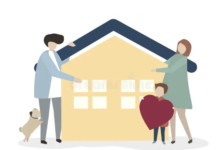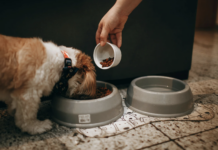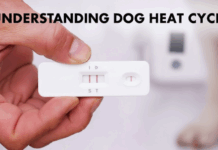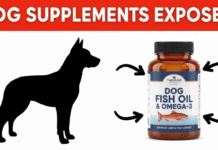Last Updated on February 4, 2025 by Dogs Vets
As our beloved canine companions age, they become more susceptible to a variety of health issues. Just like humans, senior dogs require special attention and care to ensure they enjoy a high quality of life in their golden years. Understanding the common health issues that affect senior dogs, recognizing the symptoms, and knowing how to prevent and manage these conditions are crucial for every pet owner.
In this comprehensive guide, we will explore the most prevalent health issues in senior dogs, discuss preventive measures, and provide guidance on how to care for your aging pet. By the end of this article, you will have a deeper understanding of how to support your senior dog’s health and well-being, ensuring they live out their years comfortably and happily.
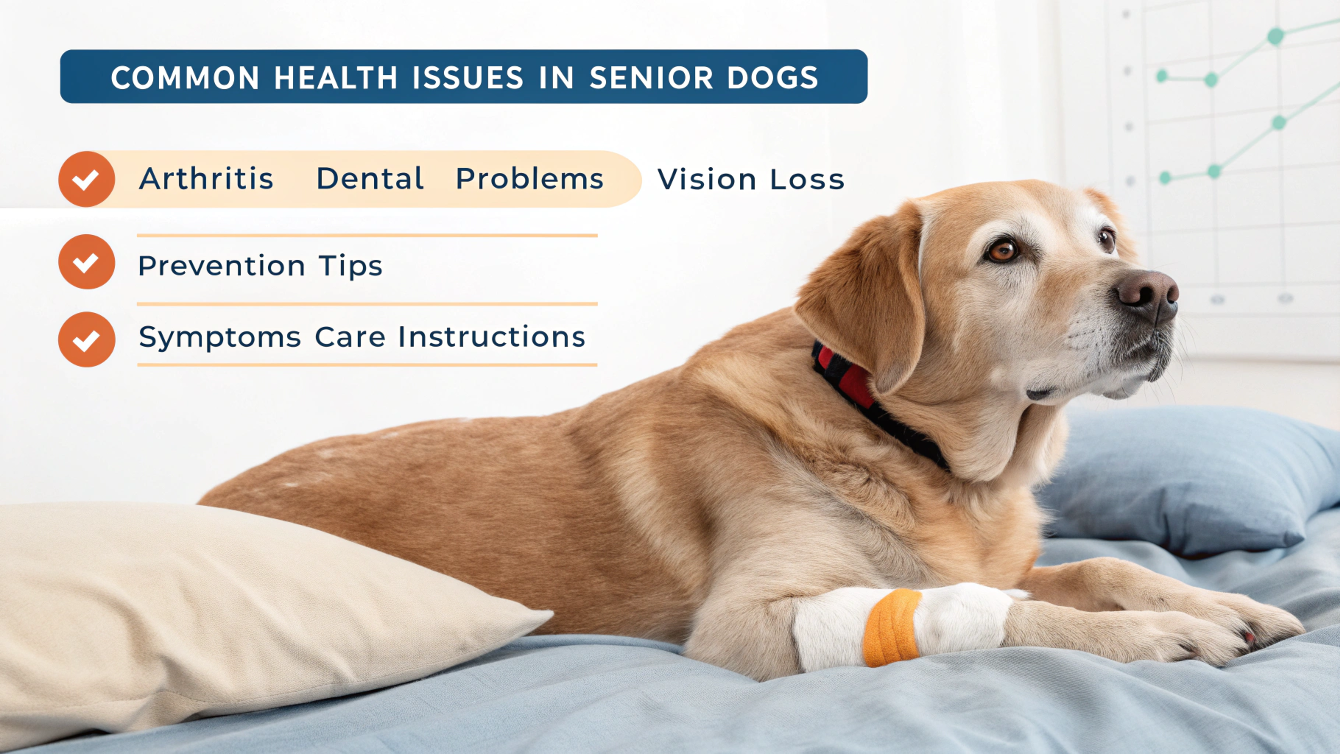
Common Health Issues in Senior Dogs
1.1. Arthritis and Joint Problems
Arthritis is one of the most common health issues affecting senior dogs. As dogs age, the cartilage in their joints can deteriorate, leading to pain, stiffness, and reduced mobility.
Symptoms:
- Difficulty standing up or lying down
- Reluctance to climb stairs or jump
- Limping or favoring one leg
- Stiffness, especially after rest
- Behavioral changes, such as increased irritability or withdrawal
Prevention and Management:
- Weight Management: Maintaining a healthy weight reduces stress on joints.
- Regular Exercise: Gentle, low-impact exercise can help keep joints mobile.
- Supplements: Glucosamine and chondroitin supplements can support joint health.
- Pain Management: Consult with your veterinarian about pain relief options, such as non-steroidal anti-inflammatory drugs (NSAIDs) or other medications.
1.2. Dental Disease
Dental disease is prevalent in senior dogs and can lead to pain, infection, and other health issues if left untreated.
Symptoms:
- Bad breath
- Red, swollen, or bleeding gums
- Difficulty eating or loss of appetite
- Loose or missing teeth
- Drooling
Prevention and Management:
- Regular Dental Care: Brush your dog’s teeth regularly and provide dental chews or toys.
- Professional Cleanings: Schedule regular dental cleanings with your veterinarian.
- Diet: Feed your dog a diet that promotes dental health, such as dental-specific kibble or raw bones.
1.3. Cognitive Dysfunction Syndrome (CDS)
Cognitive Dysfunction Syndrome, often compared to Alzheimer’s disease in humans, affects many senior dogs and can lead to changes in behavior and cognitive function.
Symptoms:
- Confusion or disorientation
- Memory loss, such as forgetting commands or familiar faces
- Increased anxiety or restlessness
- Changes in sleep patterns, such as sleeping more during the day and being awake at night
- Decreased interest in activities or interactions
Prevention and Management:
- Mental Stimulation: Engage your dog in activities that challenge their mind, such as puzzle toys or training exercises.
- Diet: Some diets and supplements, such as those containing antioxidants and omega-3 fatty acids, may support cognitive health.
- Medication: Consult with your veterinarian about medications that may help manage symptoms.
1.4. Cancer
Cancer is a leading cause of death in senior dogs. The risk of developing cancer increases with age, and early detection is crucial for successful treatment.
Symptoms:
- Lumps or bumps
- Unexplained weight loss
- Loss of appetite
- Lethargy or decreased energy
- Difficulty breathing or coughing
- Changes in bathroom habits
Prevention and Management:
- Regular Veterinary Check-Ups: Routine examinations can help detect cancer early.
- Healthy Lifestyle: A balanced diet and regular exercise can reduce the risk of cancer.
- Spaying and Neutering: These procedures can reduce the risk of certain types of cancer.
- Treatment Options: Consult with your veterinarian about treatment options, which may include surgery, chemotherapy, or radiation.
1.5. Kidney Disease
Kidney disease is common in senior dogs and can lead to serious health complications if not managed properly.
Symptoms:
- Increased thirst and urination
- Loss of appetite
- Weight loss
- Vomiting or diarrhea
- Lethargy
- Bad breath with a chemical odor
Prevention and Management:
- Diet: Feed a diet specifically formulated for kidney health, such as one low in phosphorus and protein.
- Hydration: Ensure your dog has access to fresh water at all times.
- Regular Monitoring: Regular veterinary check-ups and blood tests can help monitor kidney function.
- Medications: Your veterinarian may prescribe medications to manage symptoms and slow disease progression.
1.6. Heart Disease
Heart disease, including congestive heart failure, is a common issue in senior dogs and can significantly impact their quality of life.
Symptoms:
- Coughing
- Difficulty breathing
- Fatigue or decreased energy
- Reduced appetite
- Swelling in the abdomen or limbs
- Fainting or collapse
Prevention and Management:
- Regular Veterinary Check-Ups: Routine examinations can help detect heart disease early.
- Diet: Feed a diet that supports heart health, such as one low in sodium.
- Exercise: Regular, gentle exercise can help maintain cardiovascular health.
- Medications: Your veterinarian may prescribe medications to manage symptoms and improve heart function.
Preventive Measures for Senior Dog Health
2.1. Regular Veterinary Check-Ups
Regular veterinary check-ups are essential for monitoring your senior dog’s health and detecting issues early. Aim for at least two check-ups per year, or more frequently if recommended by your veterinarian.
2.2. Balanced Diet and Nutrition
A balanced diet is crucial for maintaining your senior dog’s health. Consult with your veterinarian to determine the best diet for your dog, considering their age, weight, and any health conditions.
2.3. Weight Management
Maintaining a healthy weight is important for preventing and managing many health issues, including arthritis, heart disease, and diabetes. Ensure your dog gets regular exercise and is fed a diet appropriate for their size and activity level.
2.4. Exercise and Mental Stimulation
Regular exercise and mental stimulation are vital for keeping your senior dog healthy and happy. Engage in activities that challenge their mind and body, such as walks, playtime, and training exercises.
2.5. Dental Care
Proper dental care can prevent dental disease and other health issues. Brush your dog’s teeth regularly, provide dental chews or toys, and schedule professional cleanings as recommended by your veterinarian.
Caring for Your Senior Dog
3.1. Comfort and Environment
Ensure your senior dog has a comfortable and safe environment. Provide a warm, cozy bed, and consider using ramps or steps to help them access furniture or vehicles.
3.2. Monitoring Health Changes
Keep a close eye on your dog’s health and behavior. Report any changes, such as weight loss, lethargy, or changes in bathroom habits, to your veterinarian promptly.
3.3. Pain Management
If your senior dog is experiencing pain, work with your veterinarian to develop a pain management plan. This may include medications, supplements, or alternative therapies, such as acupuncture or massage.
3.4. Emotional Support
Senior dogs may experience anxiety or depression as they age. Provide emotional support by spending quality time with them, engaging in activities they enjoy, and offering reassurance and affection.
3.5. End-of-Life Care
As your dog approaches the end of their life, consider their quality of life and consult with your veterinarian about options for palliative care or euthanasia. This is a difficult decision, but it is important to prioritize your dog’s comfort and well-being.
Frequently Asked Questions
1. How can I tell if my senior dog is in pain?
Signs of pain in senior dogs can include limping, stiffness, reluctance to move, changes in behavior, and decreased appetite. Consult with your veterinarian if you suspect your dog is in pain.
2. What are some common health issues in senior dogs?
Common health issues include arthritis, dental disease, cognitive dysfunction syndrome, cancer, kidney disease, and heart disease.
3. How can I prevent health issues in my senior dog?
Preventive measures include regular veterinary check-ups, a balanced diet, weight management, regular exercise, and proper dental care.
4. What should I do if my senior dog is showing signs of cognitive dysfunction?
Consult with your veterinarian for a diagnosis and treatment plan. Strategies may include mental stimulation, a supportive diet, and medications to manage symptoms.
5. How can I ensure my senior dog is comfortable in their later years?
Provide a comfortable environment, monitor their health, manage pain, offer emotional support, and consider their quality of life when making decisions about their care.
Conclusion
Caring for a senior dog requires attention, patience, and a commitment to their well-being. By understanding the common health issues that affect senior dogs, recognizing the symptoms, and implementing preventive measures and care strategies, you can help your dog enjoy a happy and healthy life in their golden years.
As our dogs age, they deserve the best care possible. Embrace the journey of senior dog ownership with compassion and dedication, and cherish the special bond you share with your beloved pet.
References
Links
By following the guidelines and strategies outlined in this article, you can provide the care and support necessary to ensure your senior dog’s health and well-being.
